Lisa Germano - Interview
by Lisa Torem
published: 24 / 3 / 2013
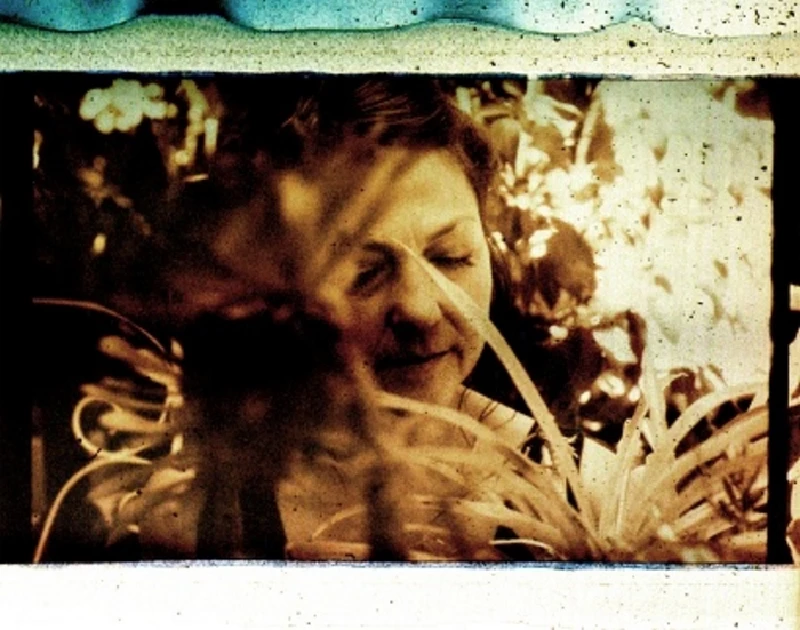
intro
Lisa Torem chats to cult artist Lisa Germano about her album, 'No Elephants', and working with Calexico, Johnny Marr, Michael Gira and the Smashing Pumpkins
There is little space between Lisa Germano’s worldview and the final production. We feel intensely the energy and angst she directs at a world which bypasses simple communication and ignores the plight of animals. Her new album, ‘No Elephants’(Badman Recording Co.), includes ‘Dance of the Bees’ an instrumental, the fragile, lilting ‘And So On’ and other songs, which require the listener’s complete attention. Germano’s legacy includes collaborations with David Bowie, Eels, Crowded House, Giant Sand and the Indigo Girls. In the early 1990s, her first album, ‘On the Way Down From the Moon Palace’ (Major Bill Records,1991) and her second record ‘Happiness’ (1994), which came out on Capitol/4AD, was followed on 4AD by ‘Geek the Girl’ (1994) and ‘Excerpts from a Love Circus’(1996), which found her sanctioning the female psyche through humour, tragedy and truth. ‘Slush’ (1997) was an exuberant, energizing collaboration done with members of Giant Sand/Calexico under the moniker of OP8 on the Thirsty Ear label, while the acclaimed ‘Slide’ (1998) brought her back to 4AD. Her sixth solo album, ‘Lullaby for Liquid Pig’ (Ineffable/Artist Direct, 2003), featured maestros Johnny Marr and Neil Finn. It came as no surprise when Swans’ front man Michael Gira released the multi-instrumentalist’s ‘In the Maybe World’ (2006) and ‘Magic Neighbor’ (2009) on Young God Records. Before embarking on an American tour and then a European tour taking her to Copenhagen, Gent and Rome – a long way from her native Mishawaka, Indiana beginnings, Lisa Germano spoke as frankly about the plight of defenseless species as she did about the injustice of failed romance and how she regained a foothold in a tough, demanding business. PB: I was listening to ‘A Psychopath’ from your third album, ‘Geek the Girl’. You used a 911 recording of a terrified woman. Your own singing voice, however, sounded calm and normal. It is interesting how various female artists deal with art and violence. Fiona Apple’s voice often sounds angry when she sings. Tori Amos puts that anger into her piano and lyrics. Where do you see yourself? LG: Well, as far as women and art and violence, I can only speak for myself. On that song I just wanted to show reality, which was that I was absolutely vulnerable and at this person’s mercy. I’m not yelling at the person. I’m scared out of my mind. It was more about, yeah, I go to bed every night with a baseball bat and a can of mace and I’m fucking frightened to death. And so I wanted to put the 911 call on there just to kind of show that the police can’t really do anything about a stalker unless he comes to your house. So the 911 call was a story about how they didn’t get there in time. I just wanted to make the point of how we are powerless. I can’t do that thing like speak for women or speak for this or that. But I felt like I could do nothing except be prepared for the worst and let people know that that kind of sucks; that you don’t get help and that definitely sucks. They can’t be out there for every single person. There’s a lot of weirdos out there and who knows if they’re going to strike or if they’re just taunting you. PB: ‘Riding My Bike’ from ‘On the Way Down From the Moon Palace’ sounded like something Robert Johnson might have written. It was very visceral and bluesy. Were you originally a blues enthusiast? LG: I don’t ever think about those things. I just do what I do. I just started playing the song. Like ‘A Psychopath,’ it was just about a person who freaked me out when I was a kid. Once again, I didn’t want to scream or anything. I was just riding my bike. I was a really nice little kid and this guy just put his dick out. It freaked me out and made me frightened of men. Wow, what’s that thing? PB: Your music with OP8 was another thing altogether maybe because you were part of a collective. You put together an album very quickly. The performances were light hearted. LG: Ivo (Watts-Russell) from 4AD had this idea that every artist would pick somebody to do three songs with and then he was going to put out three songs once a month. It was a huge project. I went out there and chose my friends that were in Giant Sand, which later became Calexico, and we did them. We just loved it. The project was too overwhelming, so it got halted, but we wanted to finish it. I went back to Tucson. We continued and finished the record in a week. They found a label, Thirsty Ear, to put it out. In the long run, it was wonderful. We went on a long tour in Europe, but Thirsty Ear just never paid us for anything. It’s so funny how record companies are. The money doesn’t matter; it is just the principle. They had it, but they wouldn’t follow through. That was the only downside. But we all love that record. That was the first time Joey (Burns-Ed) ever sang. But we had to say, “Oh, no, that is so cool.” And now he is the lead singer for Calexico. PB: In the late 1990s, Billy Corgan of the Smashing Pumpkins invited you to tour, but then sent you home with no explanation. LG: That WAS just rock star bullshit. They asked me to join the tour -- I had a record coming out and I thought that nothing was going to happen for five months so it would be awesome to tour with these guys. They seemed to want me. And maybe on the off days I could do interviews, prepare my record and this and that. We did all of these rehearsals in Chicago and they spent a lot of money on it. I left my home, leased my apartment and moved my cats to Indiana. I was on for the whole thing. We got to Europe and there was a lot of fighting between the band. Darcy (Wretzky, bass guitar-Ed)) wouldn’t talk to anyone. Most of the time in the rehearsals, Billy would go, “Lisa, would you just play Darcy’s part here?” I became kind of a scapegoat. I started doing a lot of what Darcy would have done so there was a tension there. Literally, four days before the first show, we got this huge contract. It said, you can not do this, you can not do that, you can not do any interviews. You can’t do anything. You can’t talk about the Smashing Pumpkins; you can’t work on your own records. I instantly sent it to my managers, who said, “Whoa, we have to look at this because you have a record coming out,” but it was on a weekend. My manager said, “Just don’t do anything, but let them know that you’re considering this.” So I wouldn’t sign it. The next night I got a slip under my door that said, “Where do you want to fly to, LA or Indiana, because we know you moved your cats to Indiana?” I said, “What?” It was just out of the blue. Billy was not available. I called him a million times. I left a note under his door. It was, “You’re flying today. Tell us where you want to go.” “You’re out of here.” “Where do I go?” It was awful. I wanted to get two weeks pay just to deal with all of this. They wouldn’t even do that. They’re assholes. There are a lot of assholes in the music business and in the world. PB: You’ve had some other positive experiences though. How about Johnny Marr? LG: I loved working with Johnny. He and Neil Finn played on something, and Sebastian (Steinberg) played. It was wonderful. I hate the computer internet world, but that is one place where it was good. Somebody could send somebody in New Zealand files to play on and send it back. That was wonderful. I loved that. PB: You recorded ‘In the Maybe World’ and ‘Magic Neighbor’ with Michael Gira for his label, Young God. The two of you seemed to have had an idyllic relationship. The album covers were gorgeous and you demonstrated a lot of creative thematic range within a short amount of time. Why did you leave the label? LG: I loved working with Michael Gira. I sent him ‘No Elephants’ right when I finished it and he wrote back, “I’m not just putting out records right now, I’m going to concentrate on Swans”, and then he said, “If I were you, I’d put it out myself. Use Kickstarter,” and he gave me all of this information to put it out myself and it was so kind. But I don’t really want to put records out myself. Too many people just make a record and put it out. I really wanted to find a label that actually liked what I was doing, wanted to put it out and have artwork and stuff. Michael’s awesome. I wish him the best of luck. PB: On ‘Magic Neighbor,’ you referenced cats in the title song and included ‘Kitty Train’. Are cats often your muse? LG: Sometimes. I learn a lot from my cats. A lot of people are busy. They have children and they have cats. They feed them and take good care of them, but I don’t have a family. I have got these four cats right now. They just inspire me with their silliness and how much I learn from that silliness – oh, I need to loosen up. I would go into another room and I would hear these sounds like a kitty train, as they followed me in. As far as ‘Magic Neighbor,’ I had a lady right next door in my apartment building that had these two cats we all knew. She was going through something weird. Thankfully she moved. She wanted a dog. All her cats were in her kitchen. That was her choice. She wanted her kitchen back. So she was going to put her two cats to sleep. One was a little old, but the other one was only about ten. All of us in the apartment said, “Oh, no, we’ll help you find homes for these cats.” But she wouldn’t do it. It was just devastating, but the only reason I wrote about it was because somebody right next door is doing this thing that you can not control, and it reminded me of the world and how it gets much, much bigger if it starts that small. I called her the “magic neighbor” because she’d rather have furniture than cats. I’m so glad she has gone. PB: Several links on your website lead to animal rights groups. LG: It has always been a concern, but before the last four or five years I didn’t really realise that you could help. I don’t have a lot of money. I didn’t know what I could do. But then I received in the mail something that said, Kate Winslet and Roger Moore, from the UK, were ending fois gras production. I am a very conscious person but I had no idea how much you torture these animals to make that food. That got me into it, and they did stop making foie gras in the UK. Actually in California too, they were just trying to stop it, but they’re trying to get it back. So even if I only have ten dollars here or ten dollars there – I think I have honed it down to four, but PETA does a lot of good work for everything. There is PCRM. It’s a physician’s committee for responsible medicine. They’ve been making headway – no more laboratory experiments for cosmetics – there is other ways to do it. And Humane Farming Association because, for me, the way we treat farm animals is just absurd. Not everybody is going to be a vegetarian or vegan so I’m more interested in the meat and the animals that we eat. They need to be on the earth. It has become huge for me, so I do as much as I can. PB: Last year you played violin with Tammy Lang, who did a show about Nico. Was that what inspired you to get back into doing solo work yourself? LG: I was already working on ‘No Elephants’ when she asked me to do that. It was so much fun. We were a great Velvet Underground band. Seriously, we were really, really good. Tammy inspires me because she’s so non-judgemental and just very there and never bitchy. I just loved the way that she got it going. She was Nico. The actor John C. Reilly came to one of the shows. It was so cute, and he obviously didn’t know Nico or anything so he goes, “Oh, is that Nico?” (Laughs). PB: You have worked with John Mellencamp and David Bowie. Are there other artists you would like to work with again? LG: I would work with anybody who would like to work with me. As time goes on, nobody really has any money. They try to strip down just like I do. Like on my last record, it is just me and my producer. My friend, Sebastian, just came in and played. I can’t afford other people. So it has changed. I just don’t get asked, hardly ever, to do anything. It is just because of the way things are. PB: One of the most beautiful songs on ‘No Elephants’ is ‘…And So On.’ “And when you run away I’m running after you only in dreams.” The piano and voice blend so cohesively that it sounds dreamlike. LG: That piece was the last one that I wrote. I had this melody for a long time. It just seemed so repetitive. The night before I decided to record it, it just all of a sudden came together but I didn’t really know how it was going to go. It is actually about a person who breaks your heart and then emotionally tortures you for a long time. And then all of a sudden I thought, “That’s what we do to these animals.” So it became more about animals than what I wrote about. I just thought it made sense, although it didn’t make total sense, because then you can interpret it the way you want to. We recorded it and then Sebastian came in. On the first track, he had no idea what it was and what was going on, and I love the bass part on that song so much. PB: On ‘Ruminants,’ “Four stomachs, throw up, start over…” A metaphor? LG: It is something that I’ve learned in the past few years. I didn’t know what ruminants were. Ruminants are animals like cows, sheep, hogs. They have stomachs specifically designed for eating cud. They throw it up and it goes to the next stomach. So it takes four stomachs for them to actually eat food properly. God designed it. But in our factory farms we feed them poison. We feed them corn. They can’t digest corn. When you go to a steak restaurant and it has in big letters, ‘Corn fed beef,’ you might as well say, “Beef that were fed poison and were sick their whole life.” But it has got a lot of fat and people like the fat. My point in writing the song was to help people learn that I didn’t know what ruminants were, and how much we fuck them up in factory farms because they’re sick, and that is why we give them antibiotics -- to keep them alive and then we give them hormones so they grow. Basically, you’re eating a completely sick animal and they bulldoze them sometimes. So I wrote the song to say, I need four stomachs to deal with the inhumane way they treat animals. PB: Is ‘Apathy and the Devil’ spiritual? LG: No, not at all. To be honest, I wrote it about recycling. I was working at Whole Foods and nobody was recycling there. “Nobody else does it.” That is just apathy. It makes me go, “I don’t want to recycle. Why should I? Nobody else is.” And I feel like the devil is in control of that. Like, “We got ‘em. They’re not even going to care. That’s what we want.” So I had this image of ‘Apathy and the Devil’ and seeing these two dudes walking down the street saying, “Fuck you for even caring.” PB: I was listening to the expression, ‘Fraidy cat…’ LG: That’s about being afraid to make changes. That song, ‘Back to Earth’ – “You are so in your face with all this stuff that you don’t even realize you have a choice in what you do…” “Fraidy cat, you’re being frightened.” When these cows are bulldozed to the slaughter, they are frightened. Every once in a while we all have to come back to earth. PB: Your touch on the piano is so delicate. Is that because you play violin? LG: I don’t think so. I actually played piano before the violin. And I’m not a good piano player. I can only play what I know. I could never sit in and jam with somebody on piano. I wouldn’t have a clue what to do. Anything that you play on it, if you listen to the notes resonate, it is beautiful. The violin isn’t like that and guitar isn’t like that for me. I can just play some chords. On this whole record, I just ended up playing piano. On this particular tour, I’m just going to play piano; I’m not even going to play the guitar. PB: On ‘Last Straw for Sale’ there are harmonies. Are you singing against yourself? LG: It is just me. The whole record is just me and Jamie (Candiloro). Sebastian played bass on three songs. It took us two years to make it. I had to decide what I needed to write about and Jamie is such a good engineer. He has made my last three records. We work really well together. I thought ‘Ruminants’ was really stupid – he was like, “Oh, Lisa, just come over and let’s just record it.” Often I thought, who would care about this? Then I would listen to the recording and go, there’s something there. That’s a good inspiration to just keep going even though you don’t know what you’re doing. That is why Jamie is so cool - he just makes everything sound so good. PB: Author, Candace Walsh, in her memoir, ‘Licking the Spoon: A Memoir of Food, Family and Identity’ wrote: “Singing along to Lisa Germano’s music helped me to lighten the weight of my demons without actually taking them on.” She also wrote, “It was goth music channeled through a slight female singer-songwriter who played the fiddle.” Does this description resonate with you? LG: I wish she would send it to me. I am so honoured. I’d love to read the book. PB: Well, other people say that your music is “deeply personal’ and “raw” or even so personal that it is overwhelming. Do these quotes ring true? LG: Yes. It has taken me years to actually figure out what I do. It really has and I know my music is not everybody’s cup of tea and sometimes it’s not my cup of tea. But I think that all songwriters who say these songs are not about themselves are lying or they don’t know it. Everything you write is about yourself in some way. So, I write these songs about my feelings and what is going on with me, but I would never put them on a record if they were just about me. Oh, “I ate this for breakfast and then I broke up with my boyfriend…”They aren’t about me and I would never put them out on a record to the world unless I really felt other people might feel the same thing. Of course, not everybody will like it but I would never put a record out that’s too personal. Even ‘Geek the Girl’ - very personal. The 911 call – this person could have used some help. ‘Cry Wolf’ is about being raped. Mike Tyson was with this woman and “It was her fault. She should have known better to be with Mike Tyson.” She wanted to have sex with him, sure, but she did not expect to go to the hospital and have stitches. I take that on a personal place somewhere else and if I don’t think it’s going to relate then I don’t put it on a record. PB: Fairy tales often spike a strong reaction from women. They can inspire imagination or cynicism. Some of your music has a carnival-type feel and your lyrics are very primal. Is there a prince in every frog? LG: Oh, yeah. I think there’s a princess in every frog too. I’m not a woman person or a man person. I think we’re all humans and everybody’s struggling. I didn’t really realise this until ‘In a Maybe World’. Somebody wrote, ‘These are like fairy tales. They’re really sweet songs. It’s like a good story, but the message is deeper.’ I can’t do that on purpose. And I do love that and realise there is something to that. Sometimes things are so hard to take that you write it in a story so that it’s not hard to take. I want my music to be beautiful. I want you to know something’s going on down here that I want you to check out. I don’t think it’s about women or men; it’s funny. On ‘Geek the Girl’, I got more fan mail from gay men on that record just saying, “Thank you.” I don’t know why, but I thought that was kind of cool. “Thank you so much. I know exactly what you’re talking about. I’m a gay man. I’m so afraid of certain things. I’ve been taken advantage of.” I think it’s fun to be a princess. It’s fun to be a queen. It’s fun to be a king. It’s fun to be the ogre. It’s just fun to play. I have a friend who works with children and through their play she finds out something’s going on here or something’s going on there. Playing is really an important thing. PB: You come from a family of six kids. What was that like? LG: I was the fourth. We used to count off in the car. We would go on little travels to parks and things. “Alright. We’ll stop for ice cream. We need a countdown. One, two, three, four, five, six…” All families are dysfunctional and you have to figure out where you fit in. I was always the kid who got everybody together. “Ellen, don’t you know what Emily just did? Mom, don’t you see what Maria just did?” But when I started playing with Mellencamp, I had to go through therapy. He was too big, for me. I was really worried that I was going to faint onstage. First off, she said, “Oh, what a great way to get more attention than John.” I said, “I don’t want that attention,” and she said, “I think that you do.” Maybe it’s not a vulnerable thing, it’s purposely to get attention and it just changed my mind. It’s very cool, but big families are hard. Everything’s hard. PB: What are you looking forward to on this tour? LG: I’m just so excited to play again. It’s been really hard and I don’t have any money. I did my record release show here in LA. and, seriously, thirty people came. It was not a good turnout, but it was such a nice show. What I am trying to do is not worry about those things like: turn outs, does your voice not sound good or does that not sound good? I think I’m at this point where I’m letting go of anything except being up there, sharing your music and doing the best that you can, and have a sense of humour, and try to be who you are. Some people are not going to like it and some people are. I am just excited to now have a record again so that I can try to tour again and get out there and see how it goes. I have no idea. PB: Thank you.
Picture Gallery:-
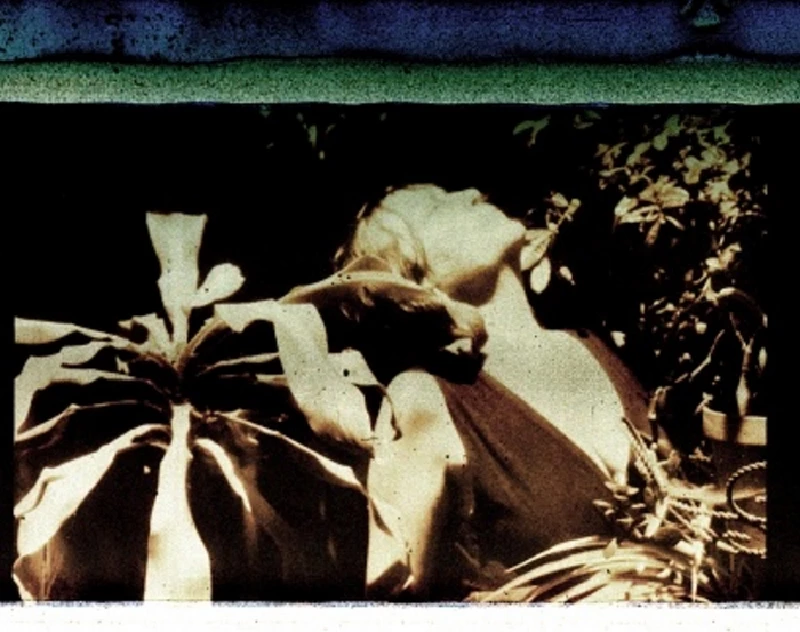
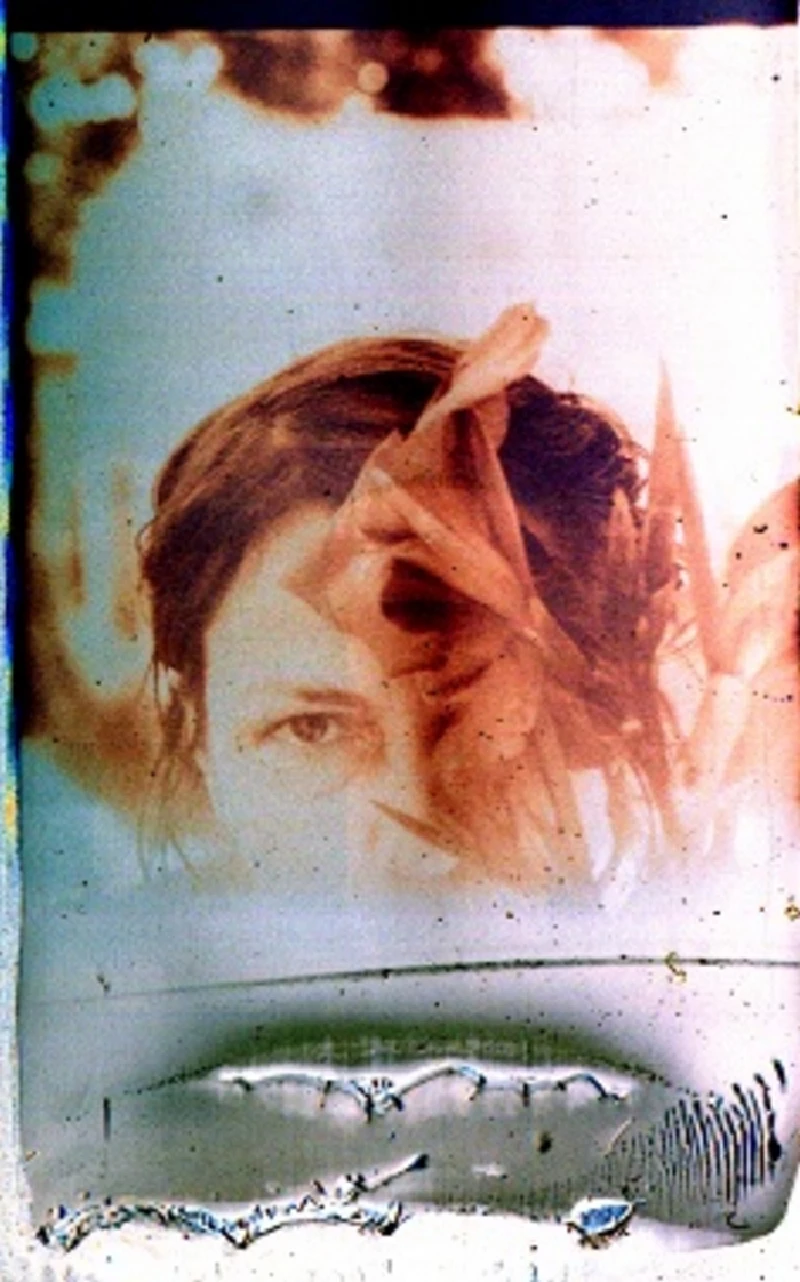
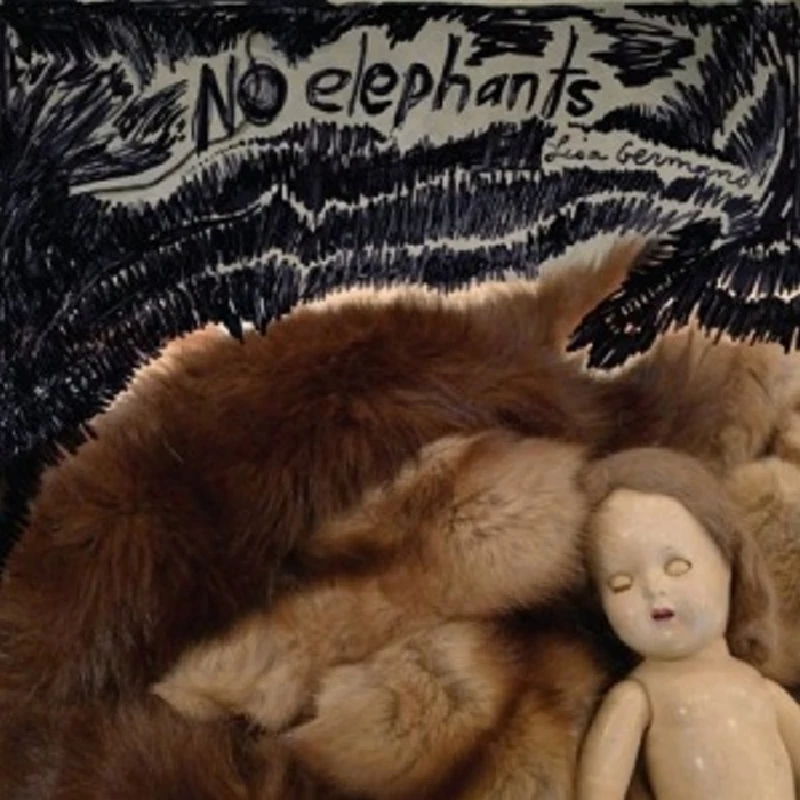
interviews |
|
Interview (2006) |
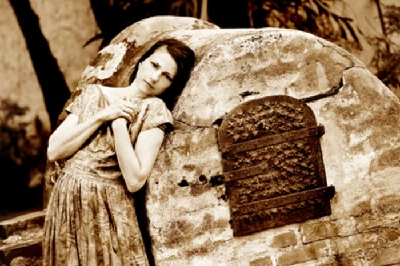
|
| One of America's most unorthodox singer-songwriters and the veteran of eight albums, Lisa Germano talks to Sarah Johnson about her haunting new album 'In the Maybe World' |
| Interview (2003) |
soundcloud
reviews |
|
Magic Neighbor (2009) |
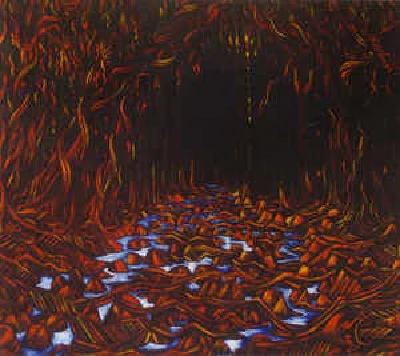
|
| Surreally haunting and dream-like tenth album from American singer-songwriter, Lisa Germano |
most viewed articles
current edition
Carl Ewens - David Bowie 1964 to 1982 On Track: Every Album, Every SongArmory Show - Interview with Richard Jobson
Colin Blunstone - Thalia Hall, Chicago, 16/7/2025
Visor Fest - Valencia, Spain, 26/9/2025...27/9/2025
Bathers - Photoscapes 1
John McKay - Interview
Loft - Interview
Billie Eilish - O2 Arena, London, 10/7/2025
Robert Forster - Interview
Sir Tim Rice - Interview
previous editions
Heavenly - P.U.N.K. Girl EPManic Street Preachers - (Gig of a Lifetime) Millennium Stadium, Cardiff, December 1999
Oasis - Oasis, Earl's Court, London, 1995
Beautiful South - Ten Songs That Made Me Love...
Pixies - Ten Songs That Made Me Love...
Paul Clerehugh - Interview
Trudie Myerscough-Harris - Interview
Prolapse - Interview
Doris Brendel - Interview
Simon Heavisides - Destiny Stopped Screaming: The Life and Times of Adrian Borland
most viewed reviews
current edition
Amy Macdonald - Is This What You've Been Waiting For?Sick Man of Europe - The Sick Man of Europe
Phew, Erika Kobayashi,, Dieter Moebius - Radium Girls
Davey Woodward - Mumbo in the Jumbo
Lucy Spraggan - Other Sides of the Moon
Alice Cooper - The Revenge of Alice Cooper
Cynthia Erivo - I Forgive You
Bush - I Beat Loneliness
Blueboy - 2
Suzanne Vega - Flying With Angels
Pennyblackmusic Regular Contributors
Adrian Janes
Amanda J. Window
Andrew Twambley
Anthony Dhanendran
Benjamin Howarth
Cila Warncke
Daniel Cressey
Darren Aston
Dastardly
Dave Goodwin
Denzil Watson
Dominic B. Simpson
Eoghan Lyng
Fiona Hutchings
Harry Sherriff
Helen Tipping
Jamie Rowland
John Clarkson
Julie Cruickshank
Kimberly Bright
Lisa Torem
Maarten Schiethart